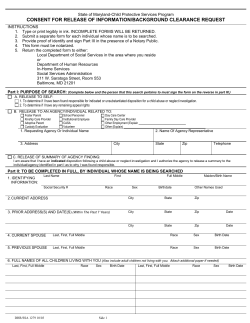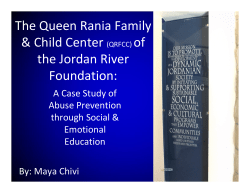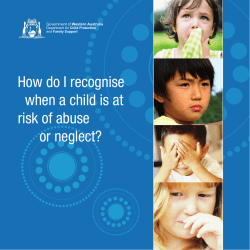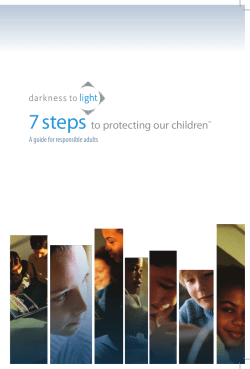
Child Protection Services Social Services Child Protection Offices
Social Services Child Protection Offices Buffalo Narrows Waite Street S0M 0J0 1-800-667-7685 306-235-1700 Nipawin 210 - 1st Street East S0E 1E0 1-800-487-8594 306-862-1700 Creighton 1st Street East S0P 0A0 1-800-532-9580 306-688-8808 North Battleford #300, 1146 - 102 St. S9A 1G1 1-877-993-9911 306-446-7705 Estevan 306-637-4550 1219 - 5th Street S4A 0Z1 Prince Albert 800 Central Avenue S6V 6G1 1-866-719-6164 306-953-2422 Fort Qu’Appelle 177 Segwun Avenue S0G 1S0 1-800-667-3260 306-332-3260 Regina 2045 Broad Street S4P 3V6 306-787-3760 Kindersley 125 1st Avenue East S0L 1S0 306-463-5470 Rosetown 122 - 2nd Avenue North S0L 2V0 306-882-5400 Saskatoon 122 - 3rd Avenue North S7K 2H6 1-877-884-1687 306-933-5961 La Loche La Loche Avenue S0M 1G0 1-877-371-1131 306-822-1711 La Ronge 1212 Highway 2 South S0J 1L0 1-866-755-5554 306-425-5511 Lloydminster 4910 - 50th Street S9V 1Z5 1-877-367-7707 306-820-4250 Meadow Lake Unit 5, 101 Railway Place S9X 1X6 1-877-368-8898 306-236-7500 Melfort 107 Crawford St. East S0E 1A0 1-800-487-8640 306-752-6100 Moose Jaw 36 Athabasca Street East S6H 6V2 saskatchewan.ca | FAM-4 10/14 306-694-3647 Swift Current 350 Cheadle Street West S9H 4G3 306-778-8219 Weyburn 110 Souris Avenue North East S4H 2Z9 306-848-2404 Yorkton 72 Smith Street East S3N 2Y4 306-786-1300 After Hours Crisis Services Prince Albert 306-764-1011 Saskatoon306-933-6200 Regina306-569-2724 Other Communities Local Police/RCMP Child Protection Services The Child and Family Services Act requires the Ministry of Social Services, Child and Family Programs, to provide services to families where children are believed to be in need of protection. The goal of child protection services is to maintain children in their family home whenever possible and, if a child must be removed for their protection, to reunite families as soon as possible. For children and families living on-reserve, child protection services are provided by First Nations Child and Family Services Agencies. What is child abuse and neglect? Abuse and neglect refers to circumstances that may be harmful to a child’s physical, emotional or psychological health. •Neglect — failing to provide a child with enough food, proper clothing, shelter, health care, or supervision. •Domestic violence — exposing a child to a pattern of abusive behaviour or threats of abusive behaviour by one caregiver against another (hitting, kicking, restraining, slapping, throwing objects, intimidation, stalking, etc.). Factors that can lead to abuse and neglect Parenting is difficult. Child abuse and neglect occurs across all socio-economic, cultural, religious and ethnic groups. Though certain factors are commonly associated with abuse and neglect, the presence of these factors will not always result in abuse and neglect. Factors may include: •Physical abuse — any action, including discipline, causing injury to the child’s body. •marital, personal or financial problems; •Sexual abuse — any action involving a child in sexual exploitation or sexual activity including touching, exposure, using a child in the making of/or viewing pornography. •lack of a support network (family or friends); •Emotional maltreatment — expecting a child to be able to do things he or she cannot do, embarrassing or insulting a child, making hurtful comments about a child’s appearance, intelligence, size, ability, etc. saskatchewan.ca •alcohol, drug or other substance abuse; •unaddressed mental health issues; •poor or over-crowded housing; •lack of knowledge about child development; •inappropriate discipline; •little or no experience caring for children; •demands of caring for a child with special needs; and •being abused or neglected as a child. Can abuse and neglect be prevented? Child abuse and neglect can be prevented by supporting parents to: •understand what is normal child development and what they can expect at certain ages; Physical Indicators Physical Abuse •enhance their parenting skills, including how to use age appropriate discipline; •learn how to resolve family conflicts; •learn to cope with stress; •recognize and seek assistance for drug, alcohol, gambling or other addictions; and •recognize and seek assistance for mental health and other health related issues. • frequent psychosomatic complaints: headaches, nausea, abdominal pain • insufficient weight gain or inappropriate weight loss As a parent — If you feel unable to safely parent your children, call the nearest office of the Ministry of Social Services. Sexual Abuse A person reporting suspected neglect or abuse is not required to provide their name. What happens when I make a report? Reports of abuse or neglect are investigated by trained, professional staff. If a child is found to be in need of protection, the caseworker has responsibility to ensure services are provided to both the child and family. • overly compliant; too well-mannered; too neat and clean • extreme attention-seeking behaviours • poor peer relationships • severe depression, possibly suicidal • running away from home • unusual or excessive itching in the genital • age-inappropriate sexual play with toys, self, or anal area others (e.g., replication of explicit sexual • pregnancy or sexually transmitted acts) infection • age-inappropriate, sexually explicit drawings • injuries to the genital or anal areas (e.g., and/or descriptions bruising, swelling or infection) • bizarre, sophisticated or unusual sexual knowledge • involvement in sexual exploitation • cruelty to animals • fear of home, excessive fear of adults • depression or other mental health challenges Neglect • abandonment • unattended medical or dental needs • lack of supervision • hunger, inappropriate dress, poor hygiene • persistent health conditions (e.g., scabies, head lice, diaper rash or other skin disorder) • developmental delays (e.g., language, weight) • displays fatigue or listlessness, falls asleep in class • steals food • reports that no caregiver is at home • frequently absent or late for school Domestic Violence • physical injuries (bruising, burns, fractures, etc.) • bedwetting • headaches, abdominal complaints • aggressive or antisocial behaviours • depression, including suicidal ideation • fearful and withdrawn • frequently absent or late for school • poor social relationships • low self-esteem What are the signs a child may be abused or neglected? There are usually signs a child is being abused or neglected. Signs may be visible, or the child’s behaviour may lead to concerns about abuse or neglect. Often, one sign is not enough, but several signs or patterns indicate abuse or neglect. The following chart lists a number of physical and behavioural indicators. Page 2 • cannot recall how injuries occurred, or offers an inconsistent explanation • reluctant to go home • frequent absences from school • fear of adults • may cringe or flinch if touched unexpectedly • may display a vacant stare or frozen watchfulness • extremely aggressive or withdrawn • extremely compliant and/or eager to please Emotional • bedwetting and/or diarrhea which is non- • extreme withdrawal or aggressive behaviour, medical in origin mood swings Abuse How can I help stop child abuse and neglect? As a member of the community — If you believe a child may be neglected or abused, you have a legal responsibility to report your concerns. You may report them to your nearest Ministry of Social Services office (listed on the back), First Nations Child and Family Services Agency or local police/RCMP. • injuries (bruises, cuts, burns, bite marks, fractures, etc.) that are not consistent with explanation offered • the presence of several injuries over a period of time • any bruising on an infant • facial injuries in preschool children (e.g., cuts, bruises, sores, etc.) • injuries inconsistent with the child’s age and development Behavioural Indicators Page 3
© Copyright 2025





















